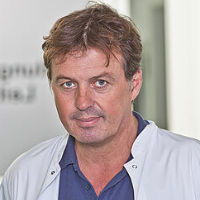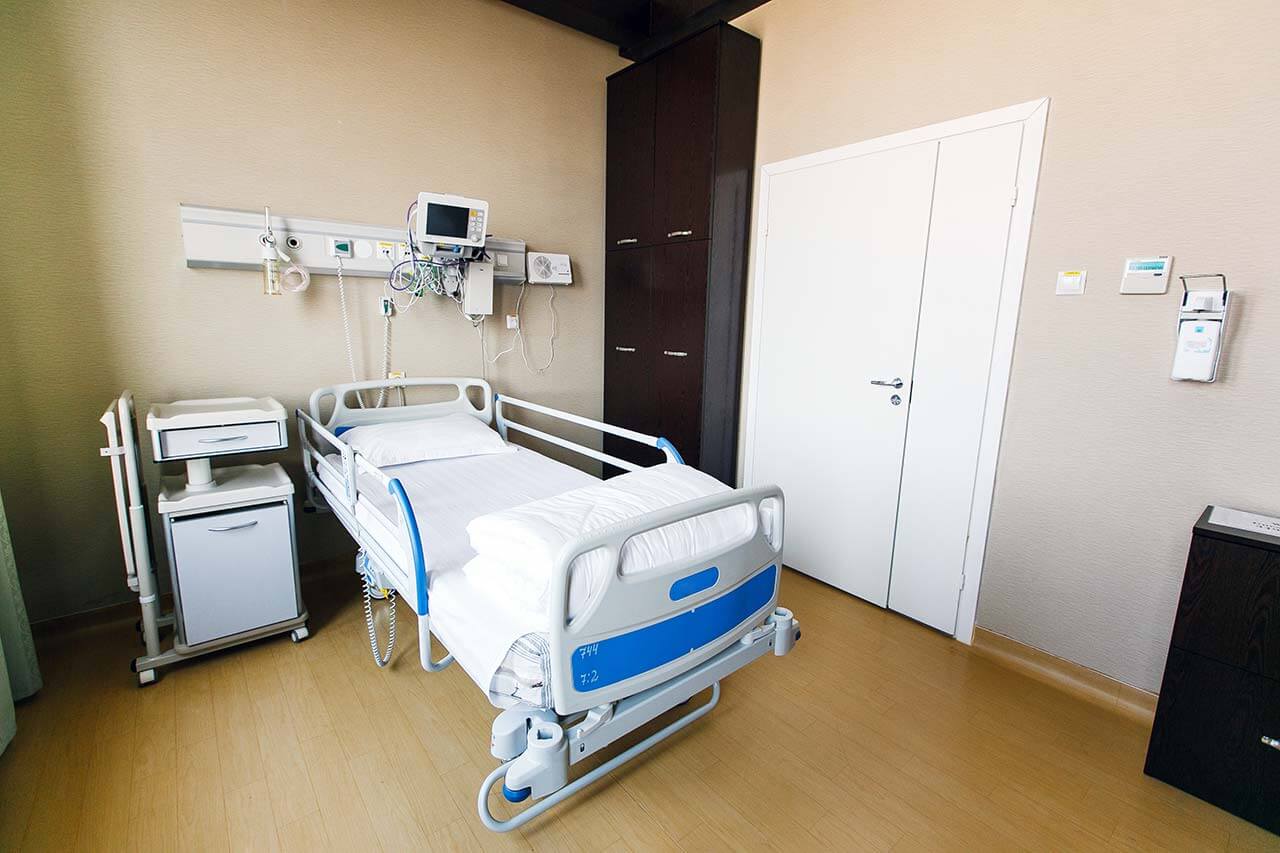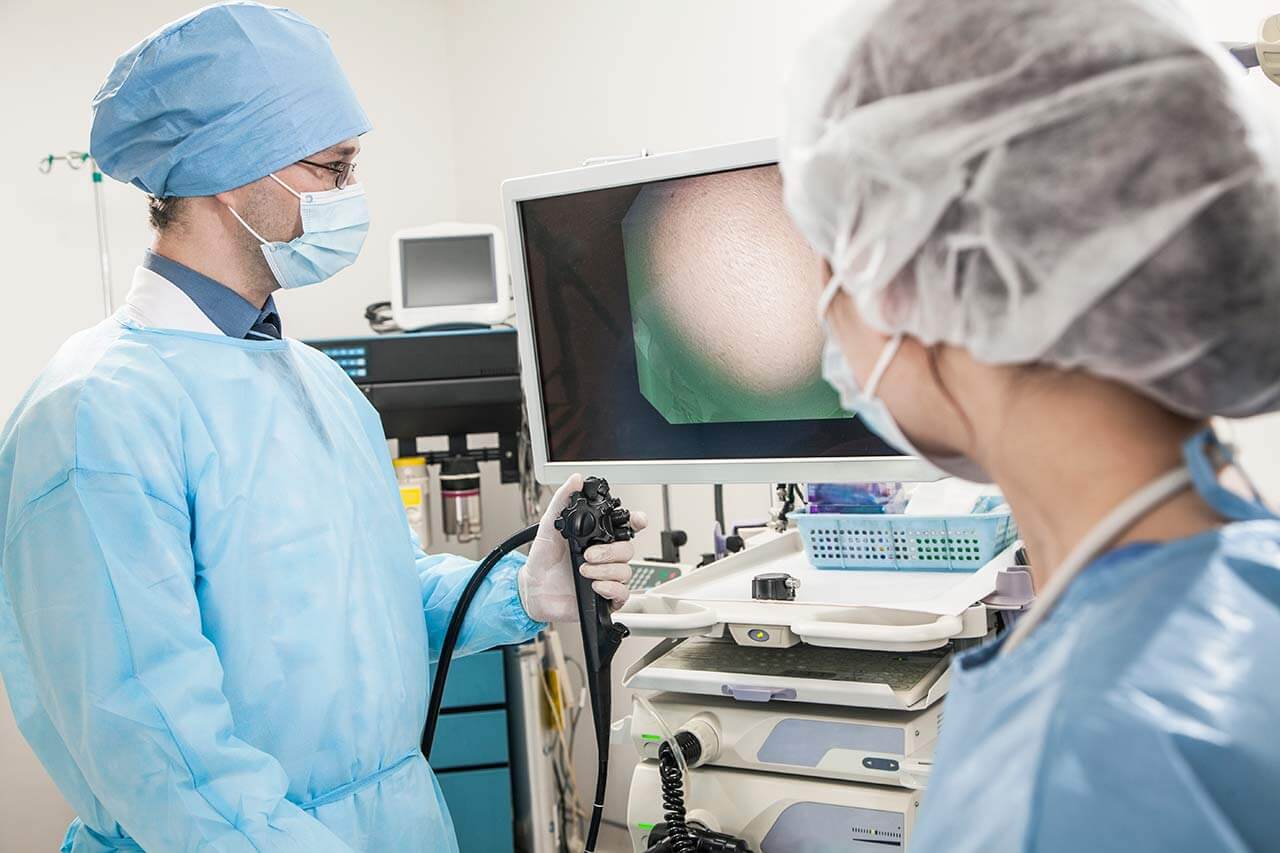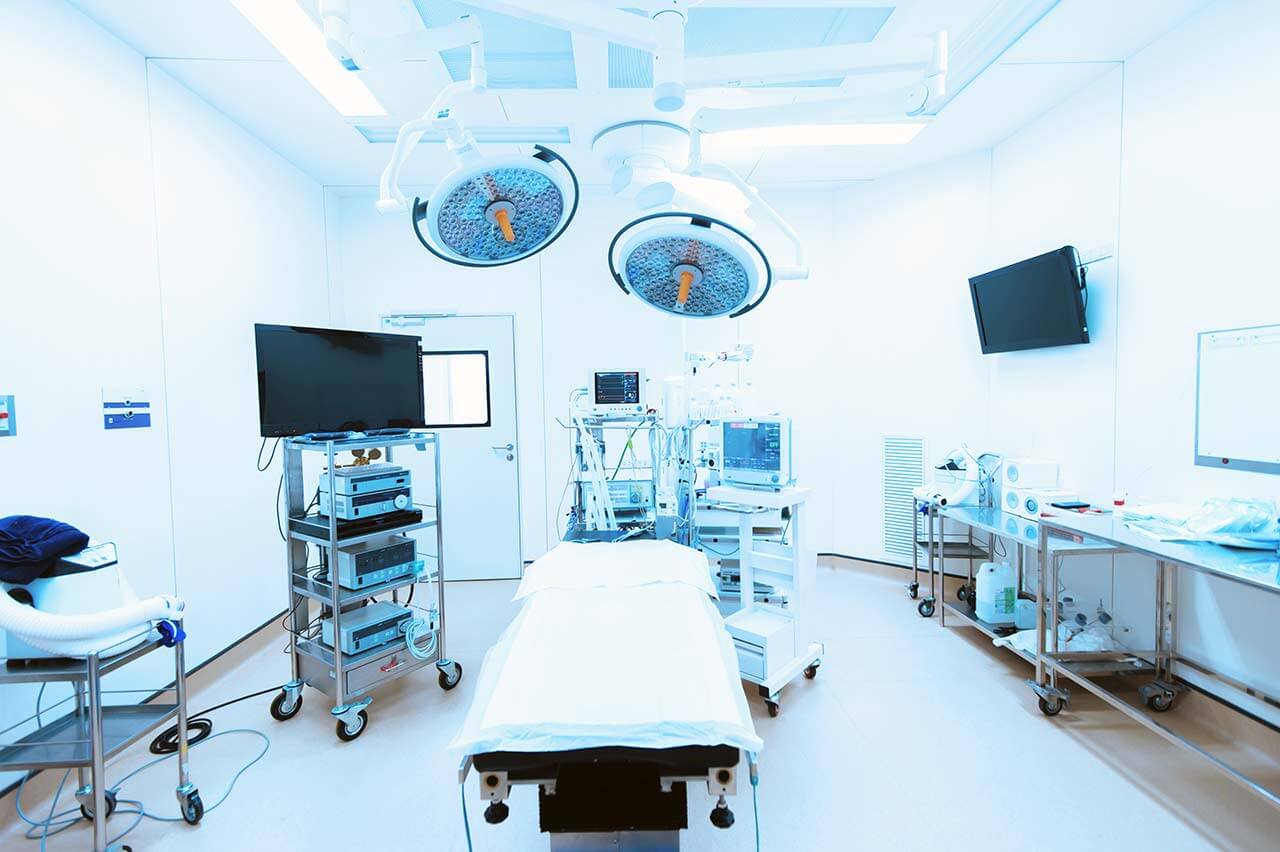
About the Department of Trauma Surgery, Orthopedics, Spinal Surgery and Foot Surgery at Luisenhospital Aachen
The Department of Trauma Surgery, Orthopedics, Spinal Surgery and Foot Surgery at the Luisenhospital Aachen provides comprehensive diagnostics and treatment for all musculoskeletal diseases. Of particular clinical interest for the team of the department's doctors is providing medical care to patients with spinal diseases and injuries, as well as performing knee and hip replacement surgery. These areas of work of the medical facility are awarded the prestigious certificate from the German Spine Society (DWG) and the DIN EN ISO 9001:2015 certificate. The department also boasts unique experience in the treatment of traumatic injuries of the skeletal bones, joints, and muscular system, including in elderly patients. The therapeutic options at the medical facility are complemented by the treatment of foot diseases and deformities. The specialists always strive to eliminate stiffness of movements and pain caused by musculoskeletal pathology with the help of conservative methods, and a surgical intervention is the last-line treatment. The department's operating rooms have state-of-the-art equipment and are adapted to perform sparing interventions using minimally invasive, arthroscopic, and hybrid techniques. The health of patients is in the safe hands of highly qualified doctors who prefer an individual approach to therapy and use their professionalism to achieve the best possible result. The department is headed by Dr. med. Fridtjof Trommer.
The department's primary focus is on the conservative and surgical treatment of spinal diseases. Conservative therapeutic options include drug therapy for inflammatory spinal lesions (such as spondylodiscitis and spondylitis), image-guided injection of drugs into facet joints, nerve roots, and epidural space, physiotherapy, therapeutic exercises, and multimodal pain management. As for the surgical treatment, the key focus is on minimally invasive and endoscopic spinal surgery. When performing operations, surgeons use innovative 3D technologies that ensure high precision and the safety of manipulations.
An integral part of the department's clinical practice is knee and hip replacement surgery. These operations are performed at a specialized center, whose medical team provides comprehensive care for each patient, ranging from the first consultation to physiotherapy in the postoperative period. Based on the diagnostic results, the department's specialists offer the patient possible treatment options, while orthopedists always strive to use sparing techniques for the preservation of the patient's own joint. Surgeons plan joint replacement surgery if a patient has a severe destructive process in which it is impossible to restore normal joint function and alleviate pain syndrome with the help of conservative methods. The department's specialists work with high-quality prostheses from leading medical companies, with a service life of up to 20 years.
The department's team of trauma surgeons provides medical care to patients with fractures and injuries of large joints (hip, knee, shoulder, elbow, ankle, and wrist), complex bone fractures, including open fractures and fractures involving muscles, nerves, and blood vessels, multiple injuries, post-traumatic infections, etc. A plaster cast is often sufficient for the treatment of mild to moderate fractures. When it comes to severe bone fractures, the best treatment option is a surgical intervention (osteosynthesis), during which the department's trauma surgeons fix bone fragments with special plates, nails, or screws, after which the body part is immobilized for proper bone fusion.
The department's foot surgeons treat patients with pathologies such as hallux valgus, hallux rigidus, metatarsalgia, flat feet, Morton's neuroma, and hammer toes. Patients with hallux valgus, hallux rigidus, and hammer toes usually require a surgical procedure because conservative therapy is often ineffective for these conditions. If the diagnosis of metatarsalgia, Morton's neuroma, or flat feet is confirmed, the specialists at the medical facility often manage to achieve a good therapeutic result without resorting to surgery. Drug therapy is recommended for patients to alleviate pain, as are physiotherapeutic procedures, the use of orthopedic insoles, silicone correctors, gel pads, comfortable orthopedic shoes, and other measures. Surgery is considered only in cases where conservative therapy does not give the desired result.
The department's main clinical activities include:
- Spinal pathologies
- Conservative treatment
- Drug therapy
- Image-guided infiltration therapy
- Physiotherapy and therapeutic exercises
- Multimodal pain management
- Surgical treatment
- Vertebroplasty and kyphoplasty (for example, for osteoporotic spinal fractures)
- Selective decompression surgery for spinal stenosis
- Dynamic stabilization of separate spinal segments
- Mono- and multisegmental spondylodesis for spinal instability caused by degenerative, traumatic, inflammatory, and tumor lesions
- Repositional spondylodesis for spondylolisthesis (vertebral displacement)
- Ventral (transthoracic) and dorsal fusion for spinal deformities (for example, scoliosis and hyperkyphosis)
- Revision surgery in all regions of the spine
- Surgery for inflammatory spinal diseases (spondylodiscitis and spondylitis)
- Minimally invasive and endoscopic facet joint denervation
- Spinal tumor ablation
- Conservative treatment
- Orthopedics
- Knee, hip, shoulder, elbow, and ankle replacement surgery, including revision surgery to replace previously implanted prostheses
- Cartilage transplant
- Shoulder and elbow arthroscopic surgery
- Shoulder stabilization in cases of instability
- Subacromial decompression
- Rotator cuff reconstruction
- Knee and ankle arthroscopic surgery
- Meniscus repair surgery: suturing and partial or total meniscus removal
- Cruciate ligament surgical reconstruction
- Cartilage surgery
- Hip arthroscopic surgery
- Pelvic, hip, knee, and ankle osteotomies
- Trauma surgery
- Conservative and surgical treatment of knee, hip, shoulder, elbow, ankle, and wrist fractures and injuries
- Conservative and surgical treatment of severe bone fractures
- Conservative and surgical treatment of polytraumas
- Conservative and surgical treatment of infections caused by traumatic musculoskeletal injuries
- Foot surgery
- Conservative and surgical treatment of hallux valgus
- Conservative and surgical treatment of hallux rigidus
- Conservative and surgical treatment of metatarsalgia
- Conservative and surgical treatment of Morton's neuroma
- Conservative and surgical treatment of flat feet
- Conservative and surgical treatment of hammer toe
- Other medical services
Curriculum vitae
Since April 2007, Dr. med. Fridtjof Trommer has been Head Physician of the Department of Trauma Surgery, Orthopedics, Spinal Surgery and Foot Surgery at the Luisenhospital Aachen. He graduated from the Faculty of Medicine at RWTH Aachen University. Dr. med. Fridtjof Trommer is board certified in Surgery, Orthopedics, and Trauma Surgery. He is also a certified Master of the German Spine Society (DWG).
Photo of the doctor: (c) Luisenhospital Aachen





